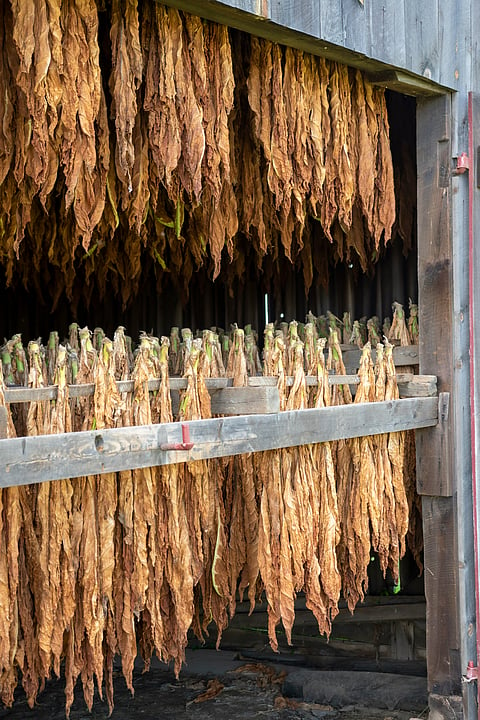
- NEWS
- the EDIT
- COMMENTARY
- BUSINESS
- LIFE
- SHOW
- ACTION
- GLOBAL GOALS
- SNAPS
- DYARYO TIRADA
- MORE

ILAGAN CITY, Isabela—As more and more citizens are shifting to vapes and electronic cigarettes, an official of Ilagan City, Isabela is confident that the tobacco industry in their city will remain up until the next generation as there are still market for it.
Ilagan City information officer Pastor Paul Bacungan said the tobacco industry will remain in the hearts of Ilagueños, as during the Spanish period, the city has a tabacalera, a company called “La Flor de la Isabela” (the Flower of Isabela) in 1887, the largest and most sophisticated tobacco and cigar factory in the world.
“In terms of culture and tradition, tobacco propagation, particularly here in Ilagan City, remains. There are still tobacco farmers here. It will remain as an industry and considered one of the crops that is produced, although it cannot be deemed as a priority industry,” he said.
He said tobacco farmers would still dwell in tobacco farming amid the proliferation of imported vapes and e-cigarettes.
“If they are affected, then why they continue to plant tobacco crops? So long that there are ‘addicts’ of conventional cigarettes, the industry will be here to last,” he maintained.
However, he said the Ilagan City government, headed by its Mayor Josemarie Diaz, is encouraging tobacco farmers to propagate other crops such as corn, ampalaya, cassava, eggplant, among other, if they want to shift from being a tobacco propagator.
“Although it is not that big compared to Ilocos Norte, as farmer only owns tobacco farm more than a hectare or so. But some of the produced even reaches abroad, but those who failed in quality control are for local consumption,” he said.
Tobacco plantations in Ilagan City are located in the barangays of Sta. Isabel Sur and Norte, and at the Eastern part of the city such as Barangay San Antonio.
On Sunday, the Ilagan City Government has provided cash subsidies for tobacco farmers, amounting to P6.4 million.
A total of 647 farmers received P10,000 each for the first quarter of this year.
Bacungan said that the cash subsidies came from the National Government, downloaded to Provincial Government and were distributed down to the municipalities as part of the Tobacco Excise Tax.
The Department of Budget and Management in January 2023 has given the go signal to release half of the tobacco excise tax to local government units, state-owned online news portal Philippine News Agency reported.
Tobacco-producing LGUs are set to receive a total of P19 billion as their share from the government’s tobacco excise tax collections in 2020.
In the provincial RA 7171 excise tax share, 70 percent will be distributed to the LGUs while the remaining 30 percent will go to the provincial local government.
The DBM said the volume of production and trade acceptances of beneficiary LGUs were based on the certifications issued by the National Tobacco Administration (NTA) and endorsed by the Department of Agriculture (DA).
Before the release of the funding, the DBM requires the identification of the list of programs and projects to be implemented wherein the beneficiary LGUs will, with the assistance of the DA and NTA, conduct public consultations with tobacco farmers duly identified by the NTA to determine the appropriate programs and projects beneficial to the said farmers.
It stated further that the programs and projects to be implemented by the beneficiary LGUs using the tobacco excise tax fund should be included in their duly approved Local Investment Programs and Annual Investment Programs.
